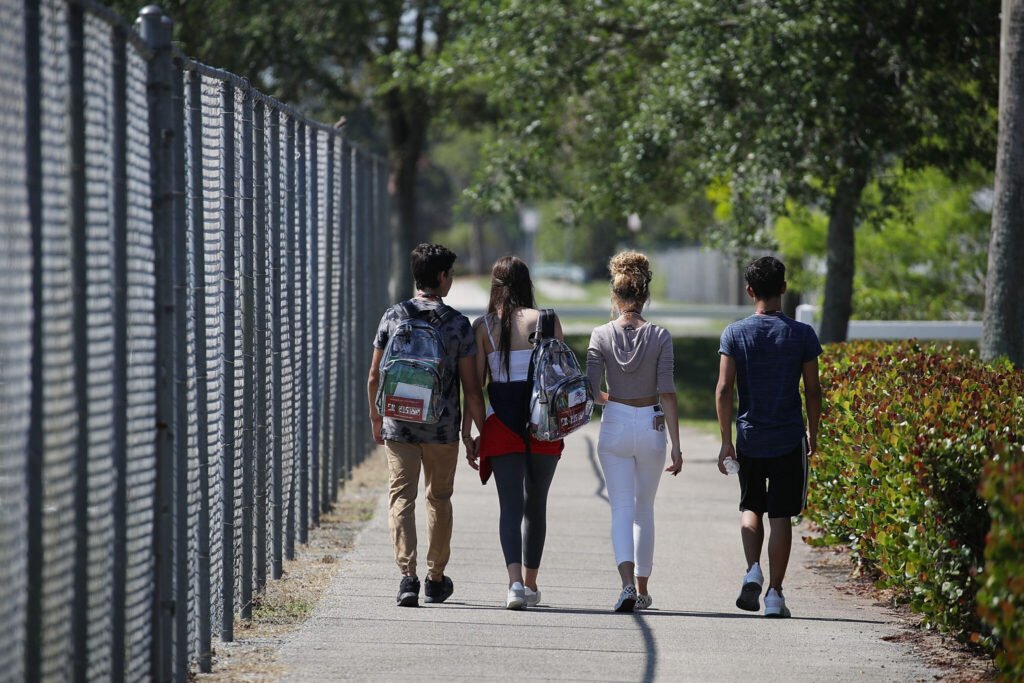Atlanta – Efforts to create a national testing program for technology central to US elections will begin later this year. This is intended to increase the security of equipment that has been targeted by foreign governments and provided fertile ground for conspiracy theories.
So far, states have been left to independently assess the technology that provides the backbone of their campaigns.voter registration databases, websites used to report unofficial results on election night; and electronic ballot bookused in place of paper rolls to check in voters at polling stations.
The nonprofit Center for Internet Security hopes to offer the nation’s first unified testing program for this technology, as it does for voting machines. The goal is to launch optional services in September as a way to make the technology more secure and reliable before the 2024 presidential election.
According to federal data, in 2020, 15 states, including Arizona, Florida and Nevada, did not require testing or certification of electronic polls.
“This is a critical need being met at a critical time,” said Chris Wlaschin, senior vice president of Election Systems & Software, a leading voting machine manufacturer that also produces electronic ballots. “I think the more election officials know about it, the more they will ask.”
In particular, the use of electronic ballot books has expanded rapidly in recent years. According to data collected by the Federal Election Assistance Commission, nearly a third of all U.S. voting jurisdictions used electronic ballots in 2020, compared with about 18% four years ago.
The system presents its own security challenges. They are often connected to the Internet or interacting with systems that are connected to the Internet. In counties with a vote center model that allows registered voters to vote at any polling place, electronic ballot books often communicate with each other and with a central voter registration system. This is one way to prevent people from voting in multiple locations or voting in person after returning their mail-in ballots.
It remains to be seen how much impact the new testing program will have on the 2024 presidential election. There seems to be a wide range of interest, although much depends on how many technology providers register and how many state elections offices use them.
“One of the main benefits of this program is that it provides a consistent authentication process for all the different states that have adopted the program,” says VR Systems, a provider of electronic ballots and election management systems. ‘s Jamie Remes said in a recent talk. An event held to discuss the test program.
The South Carolina Commission of Elections, which developed its own voter registration system, is one of the offices participating in the center’s test pilot. Commission member Brian Leach said during a recent panel discussion that he believes one of the benefits of the program is that it helps “increase voter confidence in what we do.” rice field.
electoral confidence, Especially among Republicans, decreased amid ongoing campaigns by Former President Donald Trump and his allies discredit result of 2020 presidential electionthere is There is no evidence that fraud is prevalent or operating voting equipment in 2020. in-depth review of situation lost to Trump.
The center has not escaped attacks on the US election and faces various allegations related to its activities. Online posts raise questions about its funding, purpose, and services it provides to state and local election offices.
The center receives a mix of federal and private funding, and the pilot developed for its testing program was initiated by eBay founder Pierre Omidial, a donor to Democratic campaigns and liberal causes. supported by the Fund for Democracy. The testing program itself is funded solely by the center, and will eventually be fully supported by fees paid by the technology provider, according to the center.
Meanwhile, the Federal Commission is pursuing its own testing program for electronic ballot books. Earlier this year, agency officials said they were working on a pilot program but were unlikely to have standards in place before the 2024 elections.
As the use of electronic systems has grown, they have proven to be attractive targets for those seeking to interfere in US elections.
2016, Russian hacker After scanning the state’s voter registration system for vulnerabilities and gaining access to the Illinois voter registration database, a later investigation determined that voter data had not been tampered with. 2020, Iranian hacker It obtained sensitive voter data and used it to send misleading emails and spread misinformation to try to influence elections.
Experts say the system could become a prime target for those who attempt to attack it again. interfere with voting and sow doubts about election securityFor example, gaining access to the voter registration database could allow someone to remove a voter from a role. When people turned up to vote, they were told they weren’t on the list and were forced to take provisional ballots.
Last November in Detroit, there was a slight delay in confirming voters related to data errors at some polling places, but they were quickly identified and resolved. Trump used his early reporting to call the situation in Detroit “really bad” in his social media posts, calling on people to “protest, protest, protest!”
Officials say the center’s testing program has already had the effect of increasing the reliability of the system.
Jared Dearing, senior director of election security at the Center and former director of the Kentucky Commission of Elections, said:
Copyright 2023 The Associated Press. All rights reserved. This material may not be published, broadcast, rewritten or redistributed without permission.







